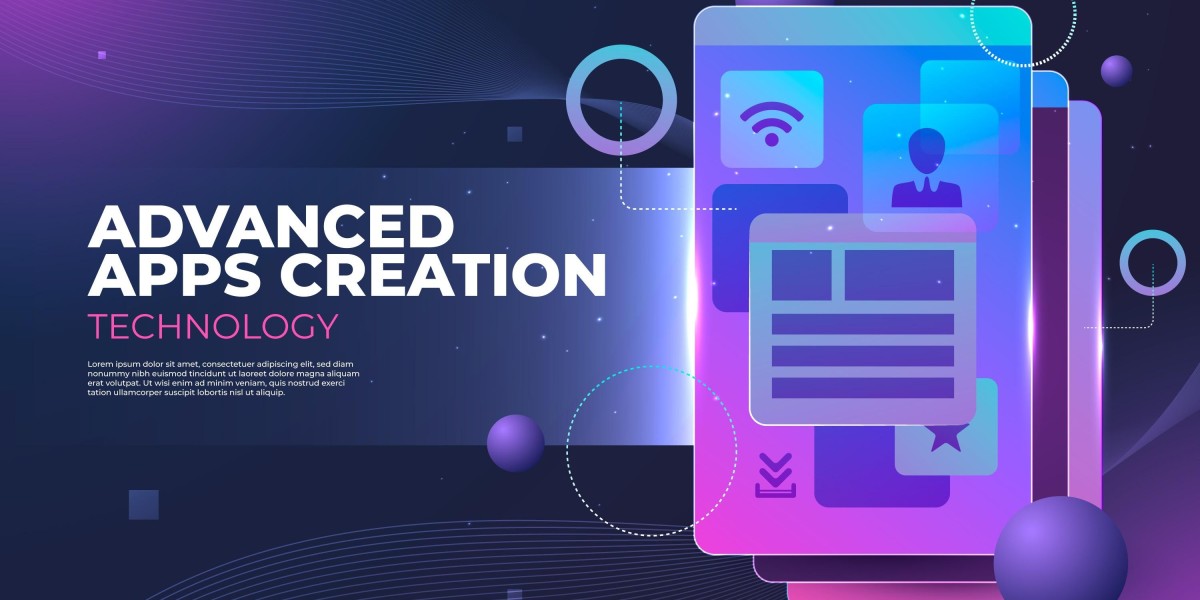In today’s rapidly evolving digital world, intelligent apps are leading the way for businesses to enhance user experience, streamline operations, and drive innovation. Powered by advanced technologies such as Artificial Intelligence (AI) and data analytics, these apps are reshaping how we interact with technology. As companies undergo digital transformation, intelligent apps are becoming essential tools in enhancing both business operations and customer interactions. Let’s dive into the ways in which intelligent apps are revolutionizing industries across the globe.
What Are Intelligent Apps?
At their core, intelligent apps are applications that use AI, machine learning (ML), and data analytics to improve their functionality over time. Unlike traditional apps, which follow a set of rules, intelligent apps are designed to learn from their environment and make informed decisions. These apps are capable of adapting to user behavior and needs, delivering a highly personalized and dynamic experience.
For example, intelligent apps can recommend content, products, or services tailored to the individual, providing a level of personalization that traditional apps cannot achieve. This ability to understand and respond to user preferences is what makes intelligent apps truly groundbreaking. They go beyond simple tasks and automate decision-making processes, leading to smarter and more efficient digital interactions.
How AI Powers Intelligent Apps
Artificial Intelligence (AI) plays a crucial role in the functionality of intelligent apps. Through AI, these apps are able to process large amounts of data and learn from patterns and behaviors. This enables them to offer more accurate recommendations, automate processes, and even predict future actions based on past data. AI algorithms, such as natural language processing (NLP), also allow intelligent apps to engage in human-like conversations with users, making interactions smoother and more intuitive.
One prominent example of AI-driven intelligent apps is the voice assistants we use daily, like Siri and Alexa. These apps continuously learn from user interactions, improving their ability to understand commands and provide more relevant responses. They also integrate with other smart devices, creating a cohesive digital ecosystem that responds intelligently to user needs.
The Role of Data Analytics in Intelligent Apps
Data analytics is another essential component that makes intelligent apps so powerful. These apps gather and analyze data in real time, enabling businesses to understand user behavior, preferences, and trends. With the help of data analytics, intelligent apps can optimize their operations and deliver targeted, data-driven solutions to users.
For instance, in the retail sector, intelligent apps track consumer purchasing patterns and browsing behavior, allowing businesses to make more informed decisions about inventory management, marketing strategies, and personalized offers. In healthcare, data analytics-powered apps can analyze patient data to provide tailored treatment recommendations or predict potential health risks. The synergy of data analytics and AI allows intelligent apps to evolve continuously, ensuring that they remain highly relevant and useful to users.
Improving Efficiency with Intelligent Apps
One of the key benefits of intelligent apps is their ability to automate tasks and increase efficiency. Automation powered by AI and data analytics allows businesses to streamline workflows, reduce manual intervention, and minimize errors. This is especially important in industries like customer service, where intelligent apps can provide real-time support and handle a large volume of requests without human involvement.
For example, AI-powered chatbots are increasingly used in customer service departments to answer frequently asked questions and resolve common issues. These chatbots, which are considered intelligent apps, can be programmed to handle more complex interactions over time as they gather more data and improve their understanding of customer needs. This not only improves response times but also frees up human agents to focus on more intricate tasks.
Revolutionizing Industries with Intelligent Apps
Intelligent apps are transforming industries across the board by driving innovation and creating more efficient solutions. In finance, intelligent apps are used for fraud detection, investment recommendations, and risk management. By analyzing transaction data and using AI models to detect unusual patterns, these apps help banks and financial institutions identify potential threats and take action quickly.
In the healthcare industry, intelligent apps are improving patient care by using data analytics to monitor vital signs, predict health risks, and provide personalized treatment plans. These apps have the potential to change the landscape of medicine, making healthcare more accessible, accurate, and efficient. The ability of intelligent apps to aggregate and analyze patient data ensures that healthcare providers can make better-informed decisions.
Additionally, the retail industry has seen a major shift thanks to intelligent apps. From personalized product recommendations to smart inventory management, these apps are helping retailers offer a more tailored shopping experience to their customers. By understanding purchasing behavior and predicting future trends, intelligent apps enable businesses to stay ahead of the curve and provide more relevant products to their target audience.
The Future of Intelligent Apps
As technology continues to advance, the potential of intelligent apps will only grow. Future developments in AI, data analytics, and the Internet of Things (IoT) will make these apps even more sophisticated, enabling them to connect with a broader range of devices and platforms. Imagine an intelligent app that not only learns from your behavior but also anticipates your needs based on external factors like weather, location, or current events.
For instance, smart homes will rely heavily on intelligent apps to manage everything from lighting and temperature to security systems and entertainment. As these apps continue to evolve, they will become even more integrated into our daily lives, making tasks simpler, faster, and more intuitive.
Conclusion: Intelligent Apps and Digital Transformation
The impact of intelligent apps on digital transformation cannot be overstated. By leveraging AI, data analytics, and automation, these apps are changing the way businesses operate and how users engage with technology. From personalized experiences to increased efficiency, intelligent apps are driving innovation across a wide range of industries. As the technology continues to advance, the possibilities for what intelligent apps can achieve are limitless. For businesses looking to stay competitive, investing in intelligent apps is not just an option—it's essential for staying ahead in today’s digital-first world.



